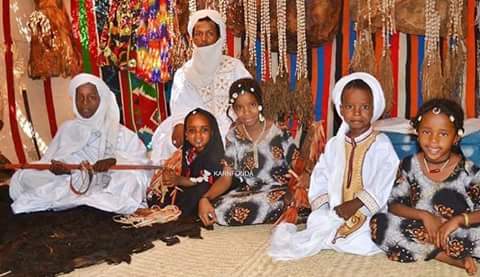The Toubou are an African ethnic minority, dispersed among four states: Libya, Niger, Chad and Sudan. They primarily reside in the southern Libyan towns of Qatrun, Sabha, Kufra and Murzuq. They are thought to account for approximately 0.2% of the Libyan population, with 12,000-15,000 members. However, given their nomadic nature, the porous borders in the region, and the fact that under the old regime the ethnic minorities were not recorded, the precise number of Toubou people is hard to be determined. They are considered to be one of the most distinctive Libyan tribe, mainly due to their dark skin colour. The Toubou people are not resemble sub-Saharan Africans. Their language, Tebu, is part of the NiloSaharan language family, and their basic social unit is the elementary family, organised into clans. Their main activities revolve around pastoralism, farming, and date cultivation . Their hostile habitat, dire poverty, extreme living conditions and remote location means they have a reputation for being a tough people. Thus, they have often come into conflict with the neighbouring tribes and with the Tuareg people. The Toubou people have long been subjected to persecution and discrimination in Libya. These practices were particularly notable during the Gaddafi rule, when they faced oppression and prejudicial treatment, by being denied access to “decent health care, education and skilled jobs, being classified and treated as national foreigners by the authorities and being ‘stripped of their Libyan citizenship in 2007’. All these were part of the Gaddafi’s Arabisation process” . As a result of this treatment, the Toubou people joined the rebels in the revolution against Gaddafi.



